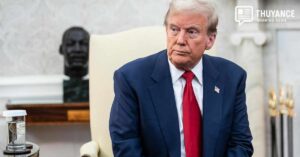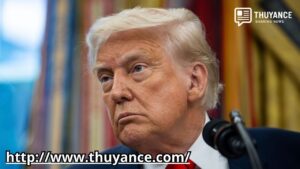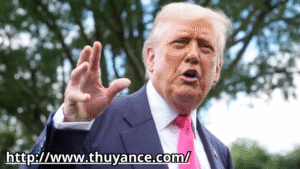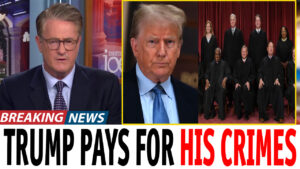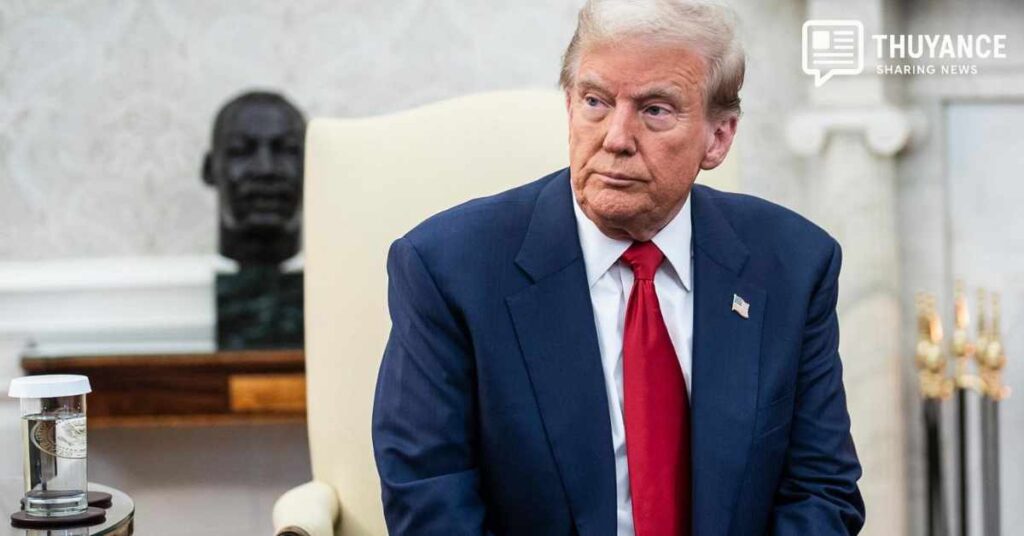
Disrupting Institutions: Donald Trump Uncompromising Challenge to the Status Quo
President Donald Trump made history within 100 days of taking office by unleashing an ambitious agenda that transformed domestic governance and international affairs. His actions defy comparison, recalling Franklin D. Roosevelt’s early presidency while remaining distinct in tone: combining forceful unilateralism with aggressive unilateralism that seeks to dismantle long-held norms.
Trump’s ambitions go far beyond rolling back New Deal and Great Society frameworks; instead he has transformed traditional Reagan-era Republican doctrine that prioritized free trade and strong international alliances. His overarching goal is clear: fundamentally altering government role in American life while redefining national standing on global stages.
Elon Musk was brought on board to assist President Donald Trump with the implementation of some aspects of his ambitious vision, with Musk charged with dismantling federal workforce through rapid cuts henchmanship – often without regard for their human consequences – that included firings and program terminations.
Trump unilaterally assumed authority to alter post-World War II alliances that have long underpinned global stability. Extraordinary emergency declarations allowed him to change trade rules worldwide and send shockwaves through markets and foreign capitals alike. Trump’s aggressive immigration orders such as deporting migrants without due legal process to El Salvador demonstrated his disregard for legal norms as well as humanitarian considerations.
Trump has taken aggressive steps against key pillars of American society: judiciary, press, public health institutions and cultural norms. Some of his efforts have already produced astonishing success – suggesting that cultural change he seeks is becoming ever more tangible.
Here is a closer look at one of the most significant first 100 days in American presidential history.
Economy: Executive Power and Economic Anxiety
From its inception, Donald Trump endeavored to shape and manipulate the U.S. economy according to his plans. Unfortunately for him, financial markets proved resilient against his interventions.
Trump’s tariffs, a keystone of his economic policy, were designed to usher in a golden age of American manufacturing. Instead, their first three months have seen consumer confidence plummet while stock market volatility spikes and investor doubt grows; rather than ushering in prosperity they have only furthered widespread anxiety.
Trump used executive authority and sidestepped a Republican-dominated Congress to implement billions in tariffs on Mexico, Canada and China – with Chinese goods facing a staggering 145% combined tax – with subsequent ripple effects creating strain between allies in Europe as well as intensified negotiations in Asia.
Trump repeatedly cast the U.S. as the victim of predatory trade practices despite presiding over one of the strongest economies on Earth. He promised tariffs would bring factory jobs home, fund an income tax reduction plan of at least $5 trillion over 10 years and help repay our $36 trillion national debt – yet, according to The Budget Lab at Yale University, his policies could cost the average household nearly $4,900 in disposable income each year.
Watch more show of news on msnbc here :
- Alex Witt Reports
- Andrea Mitchell Reports
- Chris Jansing Reports
- Deadline: White House
- Episode Show
- Katy Tur Reports
- Latest Shows
- Latest Us News
- Morning joe
- The Beat With Ari Melber
- The Last Word with Lawrence O’Donnell
- The Rachel Maddow Show
- The Weekend
- Uncategorized
Trump made headlines for trumpeting lavish investment announcements like a $500 billion artificial intelligence partnership between OpenAI, Oracle and SoftBank as well as a Hyundai steel mill in Louisiana. But reality lagged behind his rhetoric; factory construction fell in February while economists raised their odds of recession later in 2018. Additionally, tariffs drove up materials essential to energy infrastructure expansion efforts which undercut his support of coal and oil development projects.
Howard Lutnick has predicted that Trump will “own” the economy as his policies take full effect in coming months, though whether or not that ownership serves as an asset or liability remains to be seen.
DOGE: An Attack by Silicon Valley on Bureaucracy
One of Donald Trump’s more controversial initiatives was his promise to combat waste, fraud and abuse within government. To this end, he appointed Elon Musk as Director of Government Efficiency (DOGE).
Musk was uniquely disruptive. Channeling Silicon Valley thinking, he applied his “break it first, fix it later” strategy to the federal government – mass firings occurred without warning or analysis, programs were eliminated overnight and sensitive databases were accessed for cost cutting opportunities.
Republican budget hawks have long fantasized about shrinking the federal bureaucracy. Yet even veteran budget watchers were shocked by Elon Musk’s rapid and drastic efforts. Not everything ran smoothly: his projections of taxpayer savings were vastly exaggerated while his attacks against Social Security (described by him as a “Ponzi scheme“) caused alarm among retirees as well as bipartisan backlash.
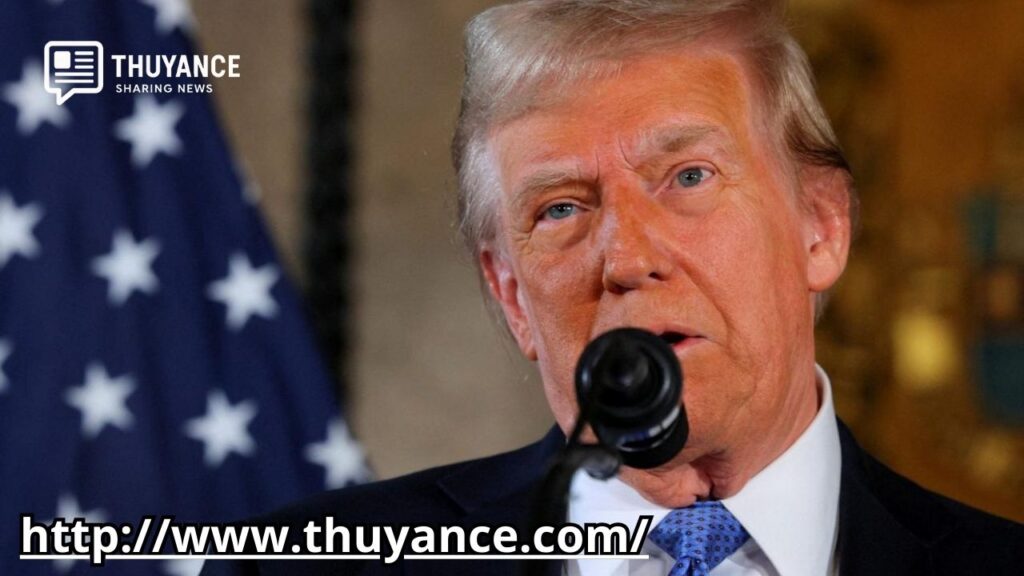
Musk’s lofty goal of cutting $1 trillion from the federal budget has since been revised down to $150 billion; whether this reduction will lead to genuine government efficiency or simply compound dysfunction remains to be seen.
Trump’s first 100 days have been marked by rapid action, unilateralism and disregard for conventional boundaries. His approach has ignited trade wars, damaged diplomatic alliances and upset domestic and international institutions alike – while keeping many promises made during his insurgent campaign with an intensity few anticipated.
Washington and the world alike await to see whether Donald Trump’s early presidency will usher in lasting transformation or set the stage for further setbacks. As markets adapt to his policies, allies reassess, and citizens adjust to an altered American posture, his early presidency could become either remembered as heralding a new era–or as evidence of overreach.
Either way, his first 100 days have made one thing clear: Donald Trump’s presidency stands apart from what America has experienced before.
Donald Trump quickly set upon an aggressive agenda during his first 100 days in office, drastically shifting domestic governance and international politics alike. His actions defy easy comparison to historical precedent; they bear similarities to Franklin D. Roosevelt’s first presidency but bear their own distinct stamp: blunt force tactics combined with unilateralism, aggressive unilateralism and willingness to dismantle long-held norms are hallmarks of Trumpism.
Trump’s ambitions go well beyond merely rolling back New Deal and Great Society frameworks; instead he has completely reversed Reagan-era Republican doctrine that advocated free trade and strong international alliances. His aim is clear: fundamentally altering government role in American life while simultaneously changing America’s place on the global stage
Trump has transformed the world during his first 100 days in office through quick actions taken unilaterally and without regard for conventional limitations. His approach has set off trade wars, rattled diplomatic alliances, and unnerved both domestic and international institutions alike – many promises made during his insurgent campaign have been realized with force that few predicted.
Washington and the world alike await answers as to whether Trump’s early presidency will result in lasting transformation or set the stage for further setbacks. As markets, allies, and citizens adjust to his vision for their nation, his early presidency may either usher in a new era–or serve as a warning about overreaching.
At any rate, Trump’s first 100 days have made one thing abundantly clear: this presidency will be different than anything America has seen before.
Stay with us for the latest U.S. news, as the country navigates major political shifts, economic challenges, and unfolding events that continue to shape the nation’s future.



